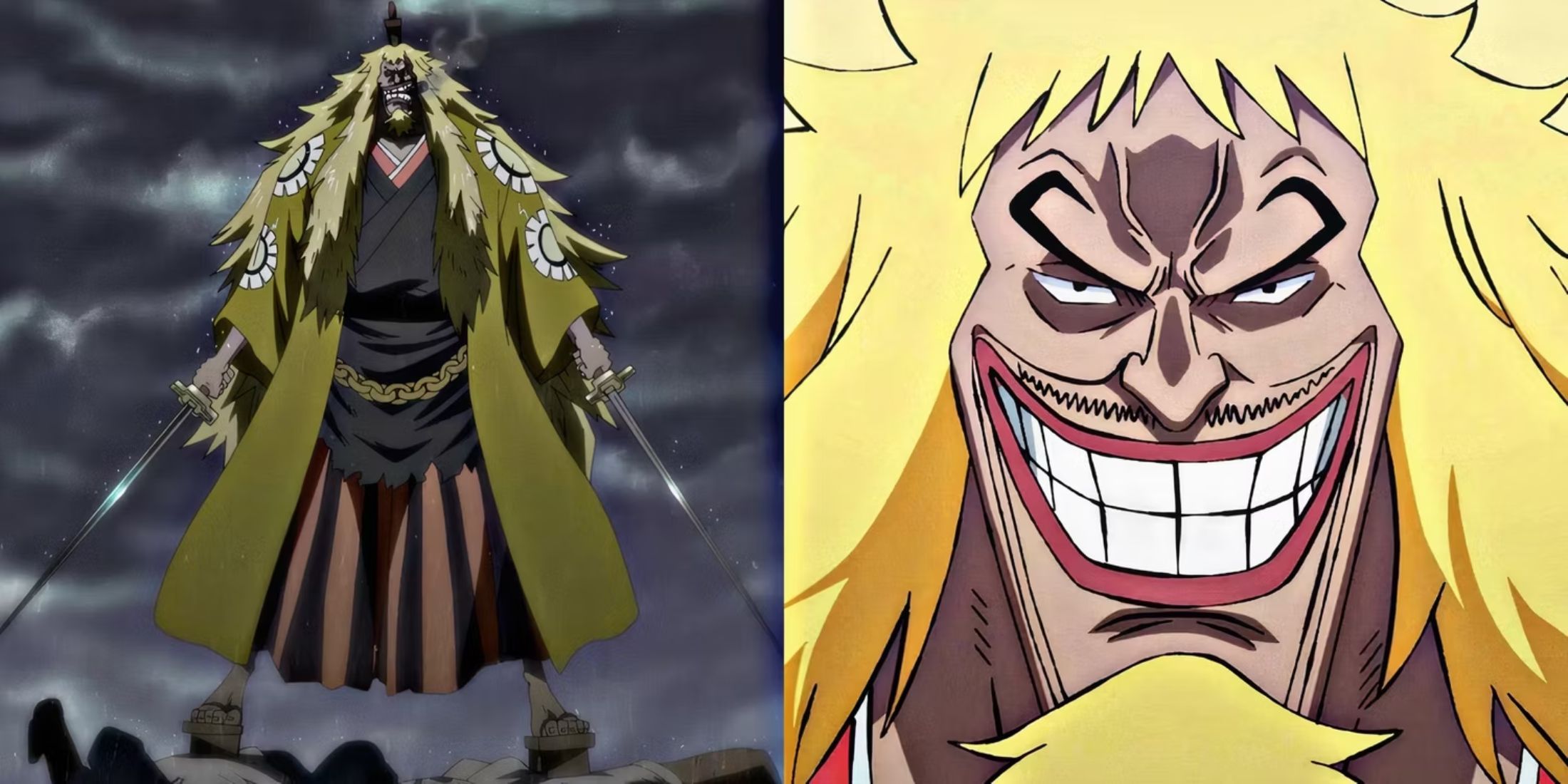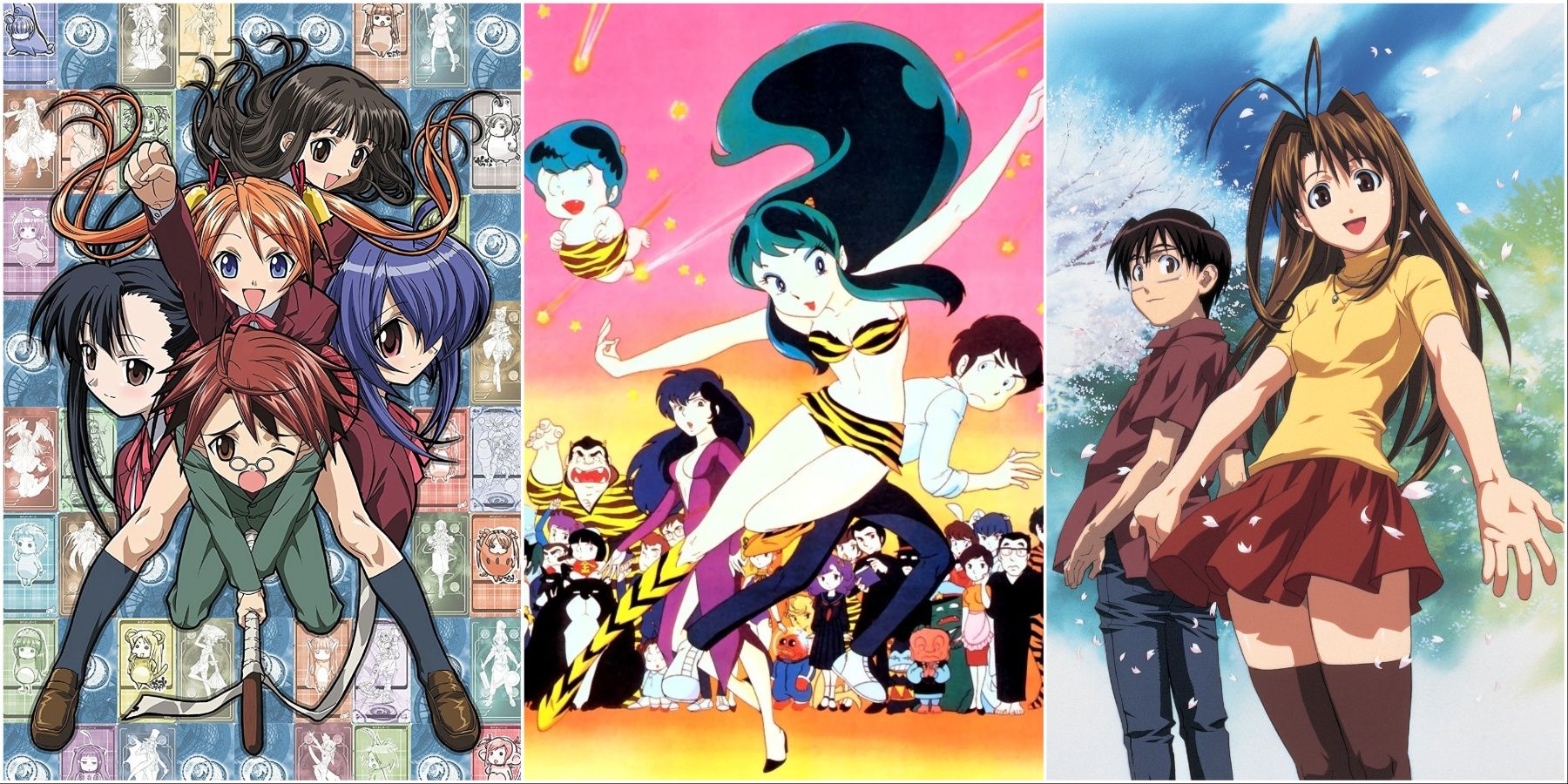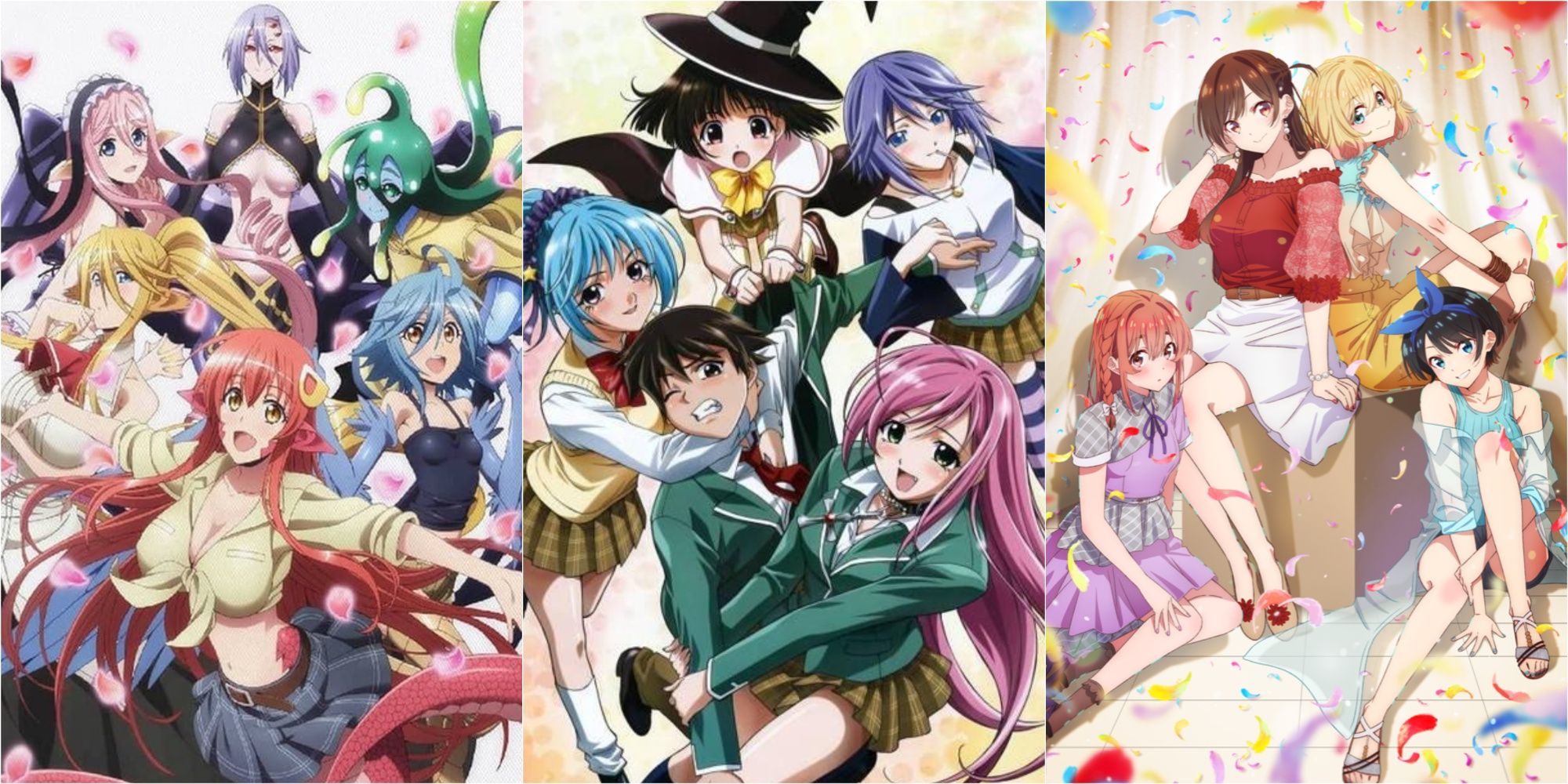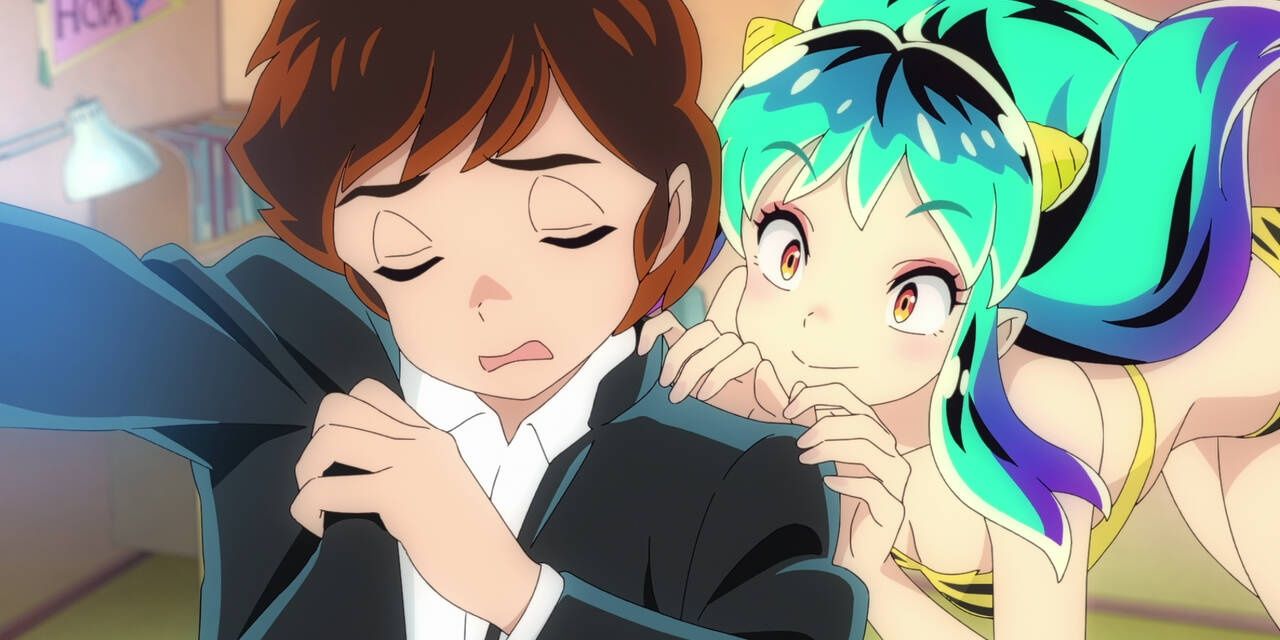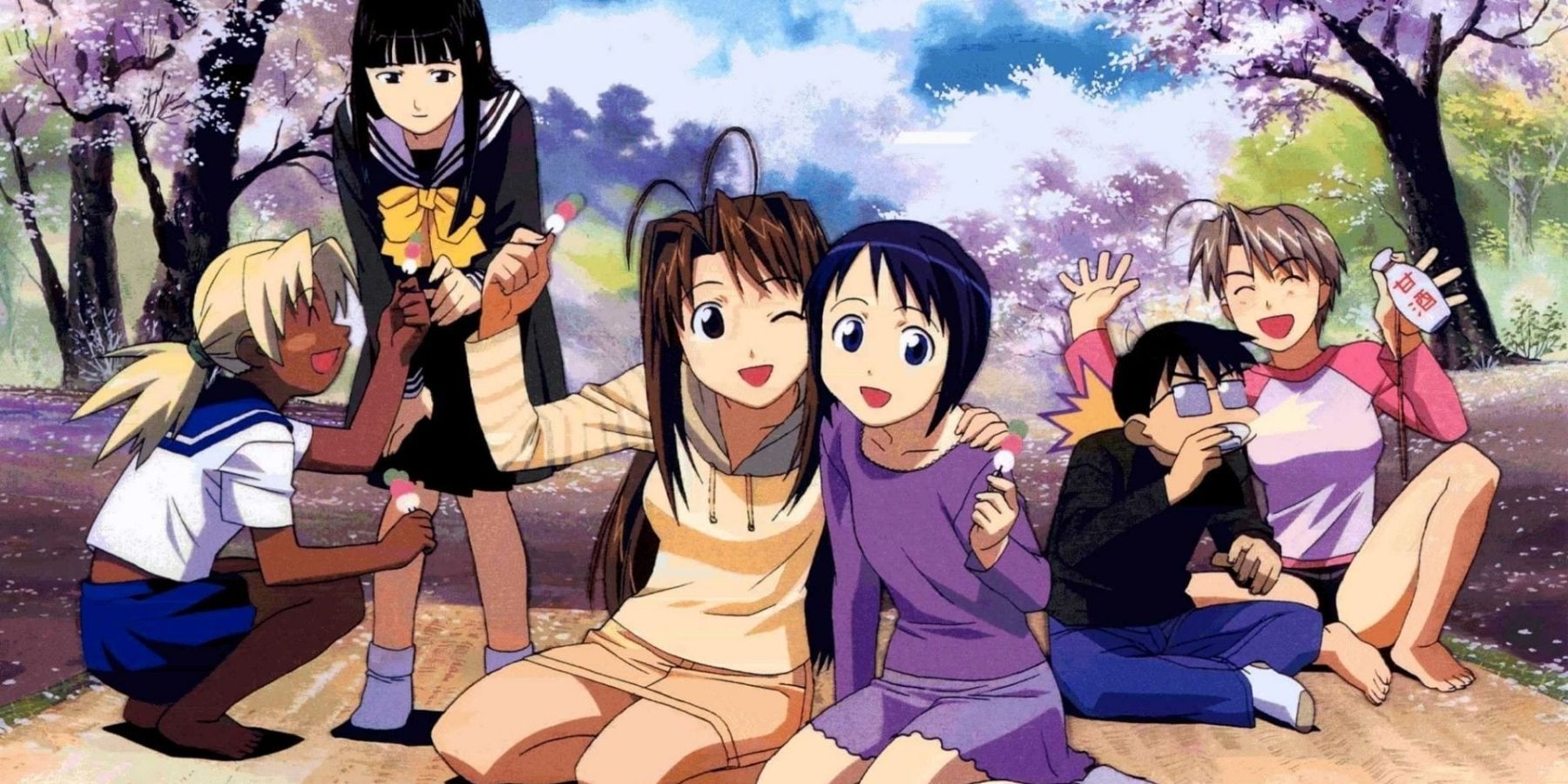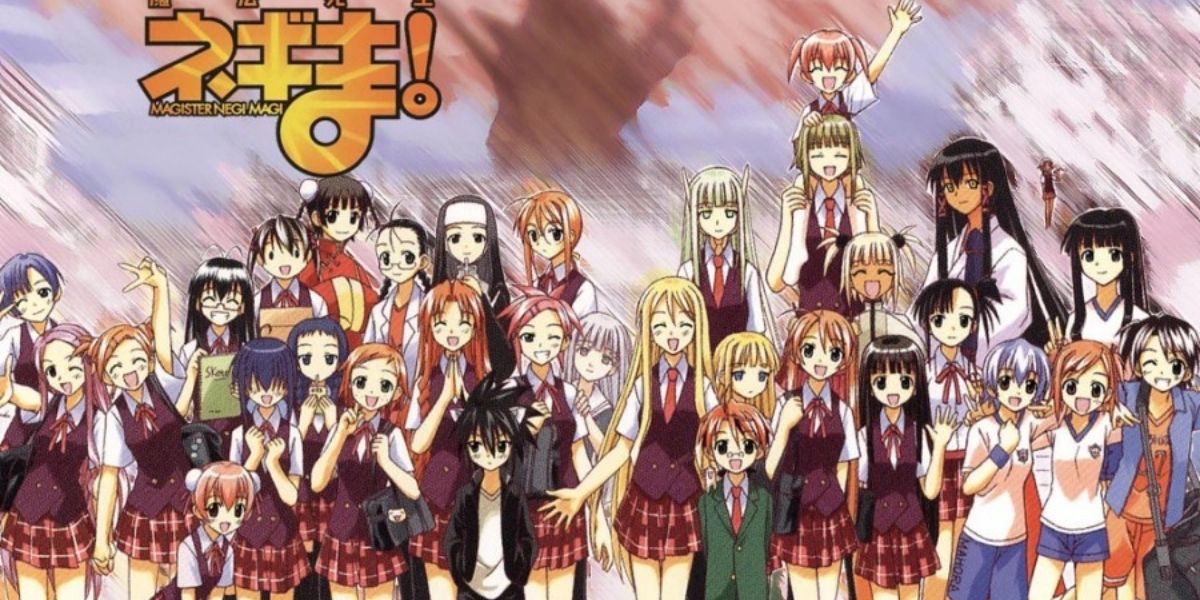Highlights
- Harem anime has been popular since the 1970s, largely due to dating simulator games and visual novels, featuring a male protagonist surrounded by romantic interests.
- Urusei Yatsura, Love Hina, and Negima! are influential titles in the development of the harem genre, shaping its tropes and characters.
- Negima! introduced the concept of a large cast harem, with each character having her own personality and influence on the story, influencing titles with sizable harems today.
With the success of the 100 Girlfriends Who Really, Really, Really, Really, Really Love You, the harem subgenre has enjoyed some time in the spotlight. While usually subject to harsh yet much-needed criticism for the narratives, characters and overall quality of the stories that fit into this subcategory, shows like 100 Girlfriends make the best of the notoriety through refreshing subversion of the harem subgenre's most popular tropes and tendencies.
If one traces the genealogy of harem in anime as it is, one will undoubtedly come across a number of classic series that may not have pioneered the subgenre but definitely shaped it in significant ways. Here's a rundown of some of the most important titles in the development of harem anime.
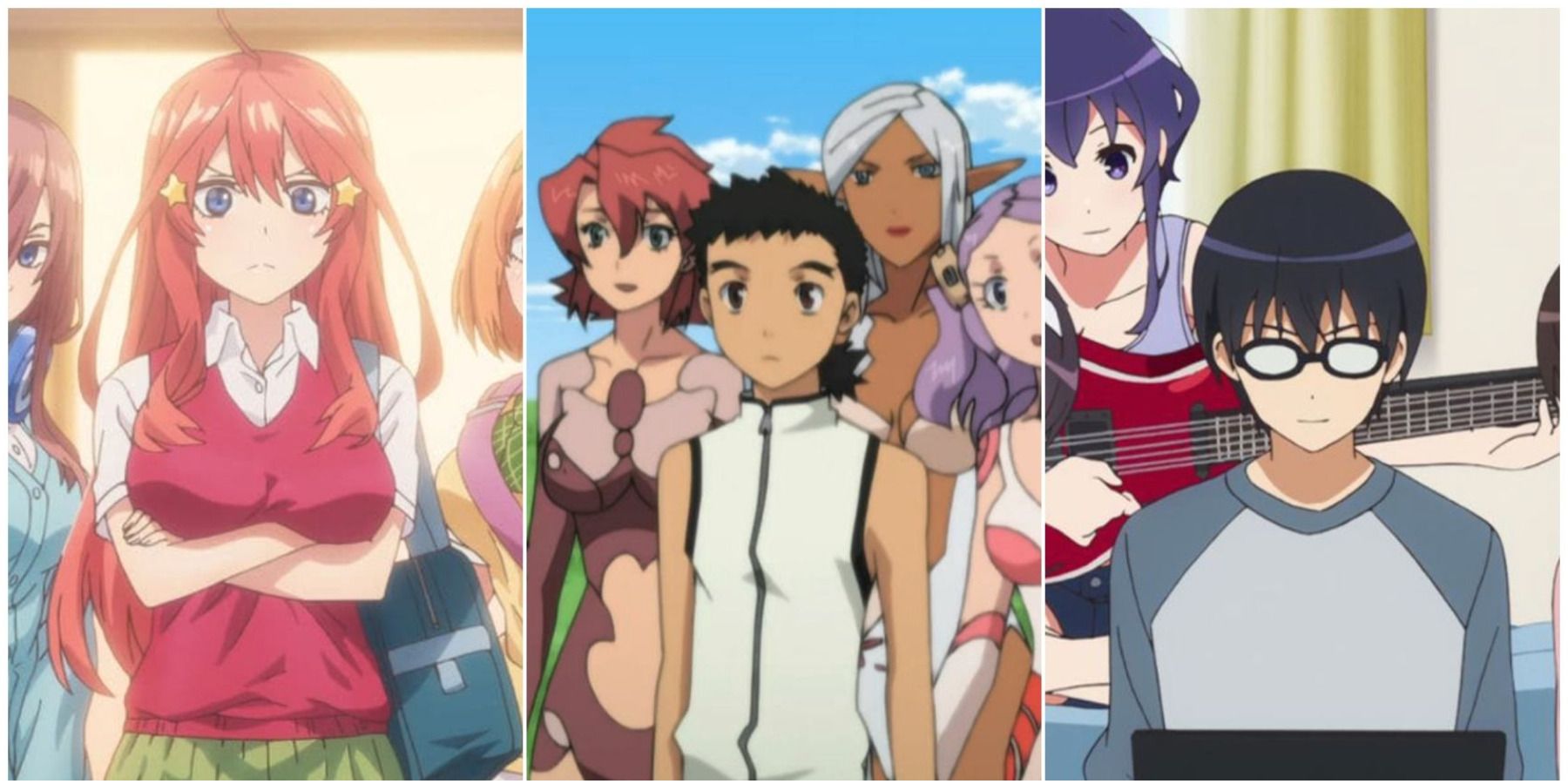
The Best Harem Anime Of All Time (June 2024)
Beloved for their numerous love interests, harem anime are eternally popular. These are the best harem animes ever made.
The Rise of Harem Anime Over the Years
Harem in anime and manga has been around since as early as the 1970s. The subgenre came into popularity in the 80s and 90s due to the advent of dating simulator games and visual novels, and often features a (usually) male protagonist who is eventually surrounded by paramours. These titles are often conducive to enabling viewers to insert themselves into the role of the generic main character. These protagonists usually lack major defining characteristics beyond being nice and passive, and the majority of their romantic interests are people of low self-esteem who react with intense romantic feelings to the kindness or basic human decency the main character displays.
While "harem" often denotes a narrative of this nature, the actual agents within and structures of these stories can vary significantly, with changes to the basic formula, especially where sex and gender are concerned. For example, "reverse harem" is often used to refer to harem stories where the protagonist is female surrounded by male love interests; however, it is also used in reference to harems where the sex or gender of those involved in the dynamic is irrelevant to their participation therein.
Harems vary in the areas of orientation, dynamic, number of heads, outcome, and even activity, etc.; but the underlying mechanics remain the same. Due to the nature of harem narratives, the subgenre often exists in tandem with ecchi and comedy, since lascivious behavior is compatible with the kind of "arms race" that occurs among romantic interests. The majority of anime titles that are centered on a harem dynamic are comedies, although this isn't a hard-and-fast rule. Titles that gave rise to the early harem genre include Rumiko Takahashi's Urusei Yatsura; Ah! My Goddess and the Tenchi Muyō franchise; while titles like Ouran High School Host Club and the underrated Amnesia were reverse harems before the popularity of those titles. There are two works by a single author that may be highly significant in the development of the kind of "new-age" harem anime that stretch each of the predefined aspects of a harem anime to epic proportions.
Urusei Yatsura Pioneered Many Classic Harem Tropes
One of Rumiko Takahashi's most famous works, Urusei Yatsura was originally published in Shogakukan's Weekly Shōnen Sunday from September 1978 to February 1987, and it followed the story of Ataru Moroboshi, a teenage boy who winds up an unlikely hero when he saves the Earth from invasion after accidentally proposing to an alien princess known as Lum. The series is critically acclaimed and credited with being one of the progenitors of not only harem but also romantic comedy, as it is explored in anime and manga.
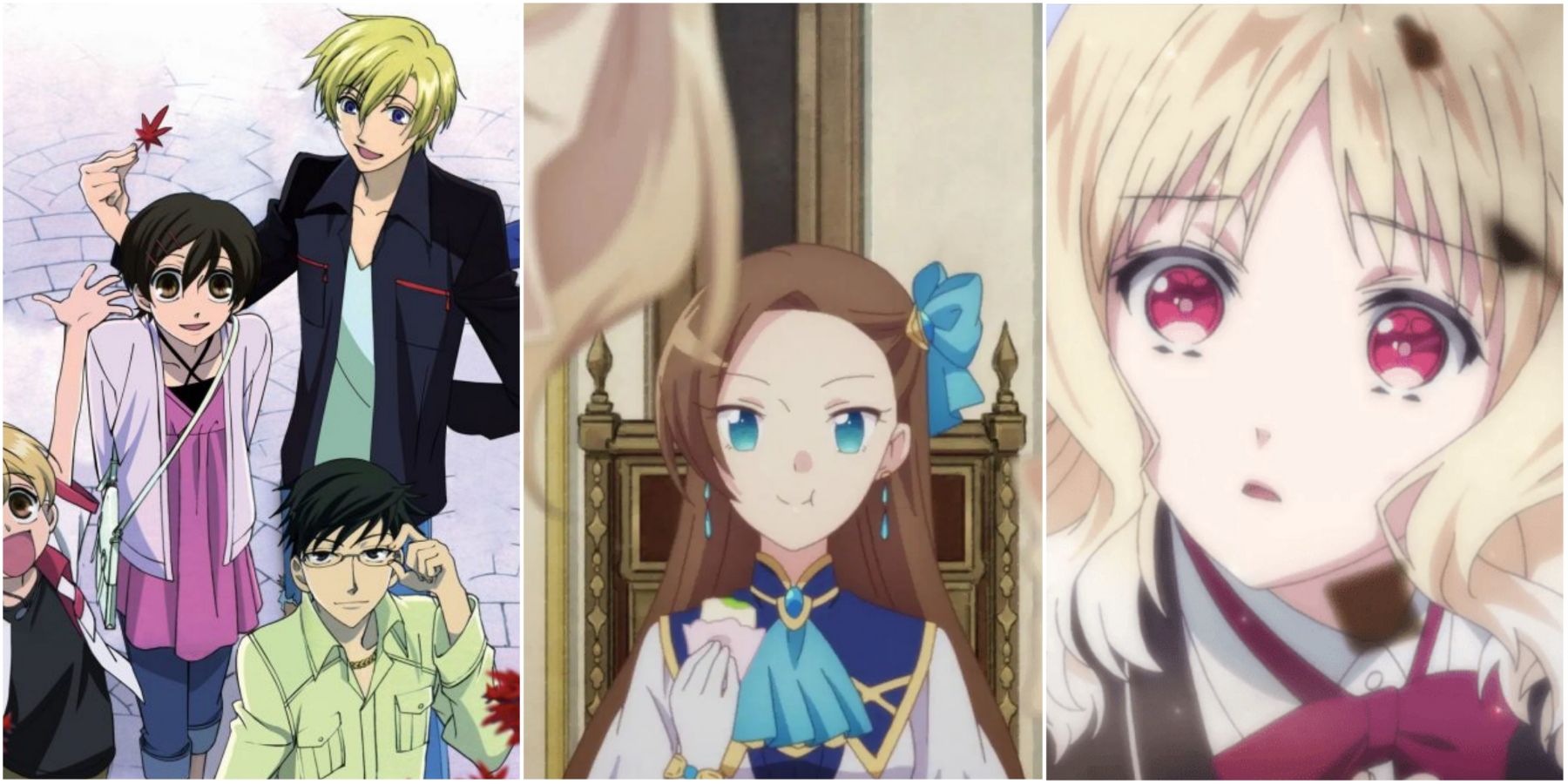
The Problem With Reverse Harem Anime
While it's a popular genre among female audiences in the anime scene, reverse harem anime suffers from a lot of issues.
Urusei Yatsura is commonly praised for the cohesiveness of its cast, and for the hilarity of its comedy, as well as Takahashi's mastery of slapstick comedy, but what is particularly significant is that Urusei Yatsura is a title that gave rise to other prominent harem anime and manga, including Love Hina and Tenchi Muyō.
Love Hina & Forgotten Promises
Ken Akamatsu's most popular title depends on who you ask; however, for many older anime fans, Love Hina is incredibly significant, particularly in the rise of the popularity of slice of life, romance, and comedy anime and manga in the west. The story was serialized in Kodansha's Weekly Shōnen Magazine from October 1998 to October 2001, and it follows university-aged Keitarō Urashima, who is looking for a girl from his past with whom he made a promise to attend the University of Tokyo. Having forgotten the name of his childhood friend, and with two failures at getting through the entrance exam, Keitarō's parents refuse to continue supporting him. He decides to live at his grandmother's hotel, not knowing that it has been turned into a female-only dormitory, nor the fact that his grandmother entrusted it to him in her will.
Keitaro must balance his responsibilities as manager of Hinata House, while trying to get into the University of Tokyo and navigating the relationships that emerge as he continues to search for the girl with whom he made the promise. The impact of Love Hina has persisted in the realm of romance, harem, and comedy anime due to its blend of elements of slapstick humour, drama, and romance. The "forgotten promise" trope within harem anime has been reflected time and time again in titles like The Quintessential Quintuplets; Nisekoi and many others be they harem or otherwise. While the influence of titles like Urusei Yatsura, Love Hina, and Tenchi Muyō can't be ignored, it is perhaps the existence of Negima! that gives rise to the kinds of dynamics, tropes and characters one will find in modern titles like The World God Only Knows, and of course, the currently-airing 100 Girlfriends Who Really, Really, Really, Really, Really Love You.
Negima! Paved The Way For Large Cast Harems
Ken Akamatsu's Negima! manga was serialized in Kodansha's Weekly Shōnen Magazine from February 2003 to March 2012. It followed 10-year-old Negi Springfield, a young mage sent to serve as an English teacher at the prestigious all-girls Mahora Academy in Japan on the last leg of his training to become a fully-fledged wizard. There he is the homeroom teacher of Class 2-A, a quirky and rambunctious class filled with all kinds of interesting characters. From vampires, ghosts, and robots to martial arts masters, journalists, and closeted internet celebrities, each of the girls in Negi's class is unique and serves as one of many ingredients that give rise to the plentiful and chaotic harem within the series.
While relatively forgotten in the wake of far more popular works, the Negima! franchise's unique point was its presentation of a huge harem surrounding the protagonist, with each character having her own personality, design (except for the twins), and even level of influence over the major events of the story. Within the group of 31 unique students in Negi's class, Negima! features a massive harem, and may have been influential in the development of titles that feature sizable harems, especially when those titles are set in universes that have fantastical or sci-fi elements, like the Toaru series for instance, which features a harem that is technically over 10 000 strong. While by no means the progenitor of the genre in the way that Urusei Yatsura is seen, the Negima! series' influence is seen in the various harem anime that continue to be produced today, particularly in those that emphasize huge harems with many distinct personalities.
The 100 Girlfriends Who Really, Really, Really, Really, Really Love You is available to stream on Crunchyroll.

